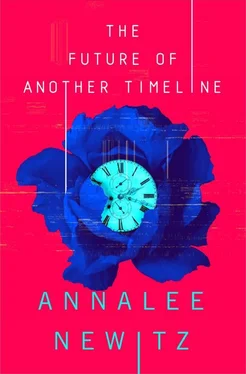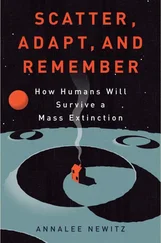* * *
Sol and Aseel named their new business the Independent Music Company, shortened on the sheet music to Ind. Music Co . Far north of our old haunt on the Midway, it was nestled among tall brick buildings in the riverfront district along Wabash Street. Cable cars clanged outside, and the theater next door had a massive billboard advertising “The Original Midway Dancers Here.” In the mornings, when the street was redolent of bacon and fresh bread, the neighborhood had an air of respectability. But as the afternoon wore on, and the barkers hawked their ten-cent tickets, packs of young men with beer foam in their moustaches smoked cigars on the street. The stench of rotting meat drifted in from the water. That’s when it was obvious that the Midway had found a permanent home in Chicago. Still, it hadn’t been domesticated. Not yet.
The Independent Music Company storefront was crammed with carefully alphabetized offerings in wooden racks labeled with signs advertising COMIC SONGS and HITS. A modern cash register with brass fittings occupied most of the marble-top counter, and a glass-front display case held a hodgepodge of impulse items: piano strings, guitar picks, wood polish, Smith Brothers cough drops for singers. Cozy and well lit, the place attracted a steady stream of musicians and promoters. But it wasn’t the heart of Aseel and Sol’s operation. That lay behind a door in the back, which opened into an airy warehouse. The previous owners used it for storing barrels of liquor, and a few busted casks still huddled in a corner, smelling faintly of sherry. Now half the room was taken up with a printing press and paper, and the other half was a woodworking shop where a former drummer from the Algerian Theater made fiddles. A spiral staircase led to the manager’s office, where Aseel worked from Sol’s favorite chair at a large conference table.
This room became our informal planning headquarters. We met for the first time on an icy Tuesday, as Aseel was going over sheet music mockups for a new dance hall hit. The cover would be in two colors, and she used a red fountain pen to sketch out where she wanted the title to swirl upward, spewing flowers and curly lines. At last she looked up at Morehshin and me, gathered earnestly at the table. Here, at the center of a thriving music business, it was more obvious than ever that Aseel was one of the few turn-of-the-century women who had managed to unbind herself from the strictures of her time. Partly that was thanks to her strength and talent, but also to the lucky edit that brought her a male boss who recognized both and rewarded her for them.
I was certain she would bend history to make room for more women like her.
She motioned for us to sit down at the table, and we talked for a while about her idea for a New York event. “But how will we organize it?” I asked. “Comstock has eyes on the post. Given what happened to Soph, we have to assume he’s still watching our correspondence. We can’t mail anyone if he’s spying on us.”
There was a banging on the stairs, and one of the printers knocked on the door. “Miss Aseel? Do you know how many copies of ‘Chicago Dancers Polka’ we’re going to need?”
“Make two dozen.” She waved him off.
That gave me an idea. “What if we sent something through the mail that looked completely innocent? You could issue a special edition of the hoochie coochie song, but with a new name, something innocuous like… ‘Country Lad.’ We could include the description of our event in the sheet music booklet.”
Aseel’s eyes gleamed. “What if we made it a dance contest? Twenty-five bucks to the best interpretation of… ‘Country Lad.’” She giggled. “I bet we could get some of the Four Hundred to shell out for prizes and a ballroom.” She was referring to a fabled group of New York socialites, whose number supposedly never topped four hundred. Rumors swirled in the gossip pages that some of their secret parties included private dances from a Lady Asenath imitator.
“How are we going to do that?” Morehshin was zapping tiny holes in the table with her multi-tool, then repairing them. When Aseel glared, she made a protesting noise. “What? I’m practicing!”
I twirled a pencil around my thumb, lost in thought. “There must be some dumb, rich dudes in New York who want a bunch of hoochie coochie girls to perform for them.”
“You know who is really dumb, and in thick with the Four Hundred? Archibald Fraser, the son of that guy who does animal shows.” Aseel put the sheet music aside excitedly. “His dad owns performing seals and elephants and sells a million tickets. Sol knows Archy, and I bet he would introduce us. If we pull this off, it’s good for the business.”
Aseel and I debated where we could hold the event. The problem was that I hadn’t been in New York since hanging out with Emma Goldman’s crew over a decade ago. Aseel only knew about venues through Sol and the gossip pages.
Oddly, Morehshin turned out to have in-depth knowledge of Gilded Age New York. “Do you know Sherry’s Ballroom?” she asked. “That’s where the Four Hundred like to throw their parties.” Then she told us about Louis Sherry, whose catering was so sought-after among the city’s elite that he’d had to move his venue twice to accommodate bigger and bigger shindigs.
“Let’s aim for that, or something like it,” I said. Then, perplexed, I turned to Morehshin. “Why do you know so much about New York society in this period?”
“I learned Atomic Age English from historical romances. Nobody asks questions when a woman watches ancient love stories about heterosexuality.”
* * *
Over the next two weeks, a flurry of letters passed between Aseel, Sol, Archy, and the booker at Sherry’s. Archy was, as promised, a socialite playboy with way too much money to spend. When Aseel told him he could invite his bachelor friends to be “judges” at the contest, he was sold. She figured out the logistics around money, food, seating, and staging, while he sent telegrams with useless advice about ribbons and trophies. It was just like old times at the Algerian Theater.
We set the date for the contest in late April, five months from now, when the weather would be warming and the Four Hundred would be ready for debauchery after the staid “Lenten season” that followed their winter balls. That would also give us plenty of time to blanket the East Coast with Ind. Music Co.’s “special commemorative edition of the Midway Hit known as ‘Country Lad.’” On the last page, we included a full-page ad for the dance contest to be held at Sherry’s Ballroom, hosted by Archibald Fraser. All contestants were to line up at the servants’ entrance and, if admitted, would be allowed one chaperone and one musician to accompany them.
We made no mention of the hoochie coochie or danse du ventre, so it would slide past Comstock’s front line of censors. But any dancer familiar with the song would know exactly what we were talking about. If all went according to plan, Comstock wouldn’t figure it out until we were already in New York, where he would be forced into a humiliating face-to-face showdown with us at Sherry’s.
My headaches were getting worse, and I measured the days in willow bark and opium dabs. Morehshin and I worked in the music shop, and rented a bigger room above Soph’s old parlors. There were bad nights and not-so-bad ones, but I never felt like myself except on days when I received a letter from Anita. She’d gotten a few nineteenth-century students interested in the idea of collective action, despite the fact that Great Men currently ruled geoscience departments. I wished we were back at UCLA together, and then I wished I were back at the Temple of al-Lat with Soph. Anywhere but here, where the mornings froze me in ice and memories polluted my brain like soot.
Читать дальше








![Аннали Ньюиц - Автономность [litres]](/books/424681/annali-nyuic-avtonomnost-litres-thumb.webp)



